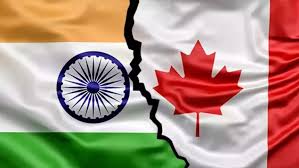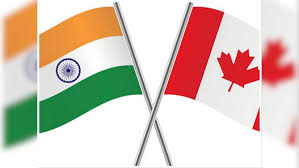The Air India Bombing: A Turning Point
The tensions between India and Canada began to escalate dramatically following the tragic bombing of Air India Flight 182 on June 23, 1985. The aircraft, en route from Toronto to London, was destroyed over the Atlantic Ocean, killing all 329 passengers and crew members on board. This attack, orchestrated by Sikh extremists based in Canada, was linked to the demand for an independent Sikh state, Khalistan. The bombing not only claimed innocent lives but also marked a significant turning point in the diplomatic relations between India and Canada.
The Aftermath of the Bombing
In the aftermath of the Air India bombing, investigations revealed that several Canadian citizens were involved in the plot, including those with connections to the Sikh separatist movement. The Indian government demanded accountability, which created a rift between the two nations. Canada’s handling of the investigation, perceived by India as lenient toward the Sikh diaspora, further aggravated tensions.
The 1985 incident led to a wave of mistrust, with India accusing Canada of harboring and sympathizing with terrorists. Relations deteriorated as both nations struggled to address the implications of the tragedy.
Diplomatic Strains in the 1990s
Throughout the 1990s, tensions persisted as India and Canada grappled with the fallout from the bombing. In 1996, Canadian authorities charged several individuals with conspiracy to commit murder in connection with the bombing, but the slow judicial process frustrated Indian officials.
The Canadian government’s repeated assertions of its commitment to human rights and freedom of expression, particularly regarding the Sikh community, often conflicted with India’s efforts to address separatism and terrorism. This divergence in perspectives created a barrier to meaningful dialogue between the two nations.
The Rise of the Khalistan Movement
As the Khalistan movement gained momentum in Canada, various organizations advocating for Sikh rights emerged, some promoting separatism. This continued to fuel India’s concerns regarding Canada’s policies towards the Sikh diaspora. The presence of pro-Khalistani groups in Canada further complicated diplomatic relations.
In the early 2000s, India raised concerns about Canada’s perceived leniency towards Sikh separatist activities. Canadian officials, particularly in the Liberal government, often found themselves caught in a balancing act between advocating for human rights and addressing India’s security concerns.
The 2005 Indo-Canadian Relations Summit
In 2005, India and Canada attempted to mend ties by holding a summit to enhance bilateral relations, focusing on trade, technology, and education. The summit sought to address lingering issues stemming from the Air India bombing and other disputes, emphasizing the importance of cooperation in counter-terrorism efforts.
However, discussions were often overshadowed by concerns regarding the Sikh separatist movement, which remained a point of contention. The Canadian government continued to emphasize its commitment to multiculturalism, complicating its relationship with India.
The 2010s: Shifts in Political Landscape
The early 2010s saw a shift in political leadership in both countries. The election of the Conservative government in Canada under Prime Minister Stephen Harper led to a more pro-India stance. In 2012, Harper became the first Canadian prime minister to visit India in over a decade, further indicating a desire to strengthen bilateral ties.
Despite these efforts, tensions flared again in 2016 when a Canadian member of parliament invited a pro-Khalistani activist to Parliament, which drew sharp criticism from the Indian government. This incident highlighted the ongoing complexities in the India-Canada relationship, as India sought to counter perceived support for separatism on Canadian soil.
Recent Developments and Current Tensions
The most recent tensions emerged in 2023 when Canadian Prime Minister Justin Trudeau accused the Indian government of being involved in the assassination of Hardeep Singh Nijjar, a prominent Sikh activist and alleged Khalistani supporter, in British Columbia. India vehemently denied the allegations, labeling them as “absurd” and calling them a “politically motivated” attempt to divert attention from domestic issues. This incident led to heightened diplomatic tensions, with both nations expelling diplomats and recalling their respective ambassadors.
The tensions have had significant implications for bilateral trade, security cooperation, and diplomatic engagement. While both countries have expressed a desire to maintain constructive dialogue, the legacy of the Air India bombing and ongoing concerns regarding separatism continue to pose challenges. The India-Canada tussle, rooted in the tragic events of the Air India bombing, has evolved over decades. While there have been attempts to improve relations through dialogue and cooperation, the underlying issues of terrorism, separatism, and differing political philosophies continue to complicate diplomatic engagement. As both nations navigate their complex relationship, addressing historical grievances and fostering mutual respect will be essential for a constructive future.




